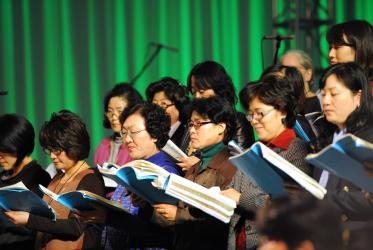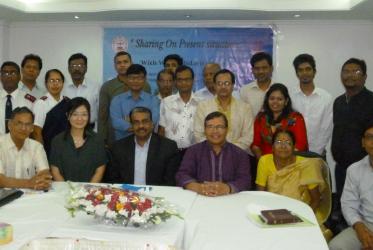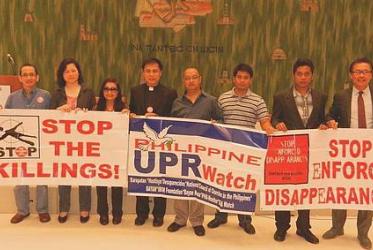Displaying 101 - 120 of 143
18 November 2014
WCC commission leadership selected
13 August 2014
Ensuring “just peace” in occupied Palestinian territory
17 April 2014
Assembly renews churches’ commitment towards justice and peace
08 November 2013
Magali Cunha joins Brazil’s National Truth Commission
28 March 2013
Assembly theme explored in new issue of The Ecumenical Review
18 October 2012
African churches address peace and security issues
31 January 2012
Ecumenical Review offers responses to HIV and AIDS pandemic
10 January 2012
Ecumenical journal analyses greed in global economics
27 October 2011
WCC Executive Committee in Ethiopia exposed to famine situation
13 September 2011
Towards an eco-theology
30 March 2011















